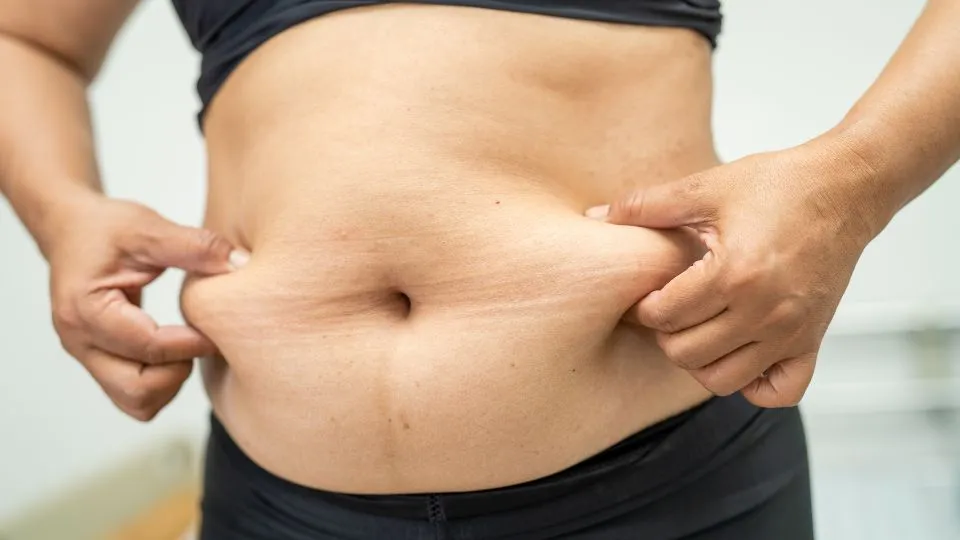Gastric sleeve recovery presents a significant physical and emotional journey for patients who choose this weight loss procedure. Clinical studies show that the immediate post-operative period typically spans 2-4 weeks, during which patients experience varying degrees of discomfort, dietary restrictions, and lifestyle adjustments. The surgical process involves removing approximately 80% of the stomach, resulting in a banana-shaped pouch that fundamentally changes how the body processes food. Patients often report pain levels between 4-7 on a standard scale during the first week, gradually diminishing as healing progresses. The initial recovery phase requires strict adherence to a liquid diet protocol, with many patients experiencing fatigue, nausea, and occasional dehydration as their bodies adapt to the dramatic anatomical changes.
Table of Contents
Beyond the physical aspects, gastric sleeve recovery encompasses substantial psychological adaptation. Research published in the Journal of Bariatric Surgery indicates that 65% of patients experience emotional fluctuations during recovery, including periods of questioning their decision, frustration with dietary limitations, and anxiety about long-term success. The brain-gut connection becomes particularly evident as decreased ghrelin levels from the surgery directly impact mood regulation. Healthcare providers typically recommend dedicated support systems, including regular follow-up appointments, support group participation, and sometimes psychological counseling. The recovery trajectory varies significantly between individuals, influenced by pre-existing health conditions, compliance with medical guidelines, and personal resilience factors that shape each patient’s unique experience with this life-altering procedure.
Recovery Timeline and Post-Surgery Care After Gastric Sleeve
The gastric sleeve recovery process follows a predictable timeline that helps patients understand what to expect after surgery. Most patients experience a complete sleeve gastrectomy postoperative recovery within 4-6 weeks, though the full metabolic and weight loss benefits continue to develop over months.
Gastric Sleeve Recovery Timeline
- First 24-48 Hours (Hospital Stay)
- Closely monitored by medical staff
- Small amounts of clear liquids introduced
- Basic mobility encouraged to prevent blood clots
- Vital signs and surgical site regularly checked
- Days 3-7 (First Week at Home)
- Sugar-free, non-carbonated liquids only
- Short walking sessions several times daily
- Surgical incisions begin initial healing process
- Sleep with upper body elevated to reduce pressure
- Days 8-14 (Second Week)
- Transition to pureed foods as tolerated
- Increased walking distance and frequency
- Follow-up appointment typically scheduled
- First signs of weight loss become noticeable
- Weeks 3-4
- Soft foods introduced according to surgeon’s protocol
- Energy levels gradually improving
- Most patients can resume light household activities
- The gastric sleeve recovery first few weeks are critical for establishing new habits
- Weeks 5-6
- Transition to regular healthy foods in small portions
- Most physical restrictions lifted by surgeon
- Significant improvement in mobility and energy
- Initial healing of the stomach is largely complete
Key Post-Surgery Care Protocols
- Hydration Requirements
- Minimum 64 ounces of sugar-free fluids daily
- Sip slowly throughout the day, not during meals
- Avoid carbonated beverages that can cause discomfort
- Nutritional Guidelines
- Protein intake prioritized (60-80g daily)
- Vitamin supplements as prescribed by your bariatric team
- Small, frequent meals (4-6 per day)
- Activity Progression
- Begin with short walks several times daily
- Gradually increase duration before intensity
- Follow specific lifting restrictions (typically nothing over 10-15 pounds for 4-6 weeks)
The sleeve gastrectomy postoperative recovery varies slightly between patients, but most follow this general timeline. Understanding how long a gastric sleeve takes to heal helps set realistic expectations. The gastric sleeve recovery long term continues for 12-18 months as your body adjusts metabolically.
Research shows that patients who strictly adhere to post-operative guidelines experience fewer complications and better weight loss outcomes. The VSG recovery timeline provides a framework, but your bariatric surgeon will provide personalized guidance based on your specific health factors, surgical outcome, and recovery progress. Gastric Sleeve Recovery Milestones can help you understand how hard is gastric sleeve recovery while tracking your progress. Each stage of recovery presents different challenges and achievements, emphasizing the importance of adhering to your surgeon’s advice.
Pain Management and Physical Recovery After Gastric Sleeve
Gastric sleeve surgery, or laparoscopic sleeve gastrectomy, involves significant physical changes that affect recovery and comfort levels. Understanding the pain experience and physical limitations during healing helps patients better prepare for their post-operative journey.
Pain Experience After Gastric Sleeve Surgery
- Incisional pain typically lasts 1-2 weeks after gastric sleeve surgery, with the most intense discomfort occurring during the first 3-5 days
- Gas pain in the shoulders and upper abdomen may persist for 24-72 hours as a result of the carbon dioxide used during the laparoscopic procedure
- Internal healing pain from the stomach staple line can create a sensation of tightness or pulling that may continue for 2-4 weeks
- Referred pain to the back, chest, or shoulder areas is common and usually resolves within the first week
How painful is gastric sleeve recovery? Most patients rate their pain between 4-7 on a scale of 10 during the first few days, decreasing to 2-4 by the end of the first week. The hardest days after gastric sleeve surgery are typically days 3-5 when post-operative swelling peaks.
- Primary pain sources during recovery:
- Surgical incisions requiring careful cleaning and monitoring
- Internal staple line where the stomach was resized
- Abdominal muscle discomfort from surgical manipulation
- Referred gas pain in shoulders and upper back
Post-op gastric sleeve incisions require proper care to ensure optimal healing. Most patients receive 4-6 small incisions (0.5-1.5 cm each) across the abdomen. These typically heal externally within 2 weeks, though internal healing continues for 6-8 weeks.
Physical Restrictions During Recovery
- No lifting over 10-15 pounds for 4-6 weeks to prevent hernia development
- Limited bending and twisting for the first 2-3 weeks to protect the staple line
- Gradual return to exercise starting with walking immediately after surgery
- No swimming or bathing until incisions are completely closed (typically 2-3 weeks)
- No driving while taking narcotic pain medications or until reaction time returns to normal
Gastric sleeve physical restrictions are designed to protect the surgical site and promote proper healing. The gastric sleeve recovery difficulty varies between patients, with factors like pre-existing conditions, age, and adherence to guidelines affecting the experience.
- Common physical challenges during recovery:
- Fatigue and weakness from reduced caloric intake and surgical stress
- Difficulty finding comfortable sleeping positions due to abdominal discomfort
- Temporary difficulty with deep breathing from abdominal pain
- Limited range of motion during early recovery phases
Gastric sleeve complications recovery concerns include monitoring for signs of infection, leakage, or blood clots. Approximately 5-10% of patients experience minor complications, while major complications occur in less than 2% of cases. Unusual pain that increases rather than decreases over time requires immediate medical attention, as it may indicate laparoscopic sleeve gastrectomy healing complications.
Return to Work and Daily Activities After Gastric Sleeve
Returning to work after gastric sleeve surgery requires careful planning and adherence to medical guidance. Most patients wonder about their gastric sleeve recovery time off work and how to safely resume normal activities.
Time Off Work Requirements:
- Most patients need 1-2 weeks off work after gastric sleeve surgery, depending on their job requirements and individual recovery progress
- Desk jobs or sedentary work typically allow returning to work after gastric sleeve within 7-10 days
- Physical or demanding jobs may require 2-4 weeks of recovery before safely returning
- Some patients benefit from starting with part-time hours before resuming full-time work
Driving restrictions are another important consideration for those planning their return to daily activities. How soon can I drive after gastric sleeve surgery? This depends on several factors:
- You must be completely off narcotic pain medications
- You should have full range of motion and ability to react quickly
- Most surgeons recommend waiting 5-7 days after surgery
- You must feel alert and able to concentrate fully on driving
After surgery, there are several things you can’t do after gastric sleeve that patients should be aware of during the recovery period:
- Avoid lifting anything heavier than 10-15 pounds for at least 3-4 weeks
- Refrain from strenuous exercise or high-impact activities for 4-6 weeks
- Postpone swimming or bathing in tubs until incisions are fully healed
- Limit long periods of sitting without breaks to prevent blood clot formation
Many patients wonder how long does it take to feel normal after gastric sleeve surgery. While individual experiences vary, most patients report returning to most normal activities within 3-4 weeks, though complete internal healing takes longer. The body requires adequate time to adjust to both physical changes and the new dietary regimen.
When planning your return to work, discuss with your employer the possibility of workplace accommodations such as frequent small breaks for eating, access to fluids, and temporarily modified duties if your job involves physical labor or heavy lifting.
Recovery Support and Success Strategies
Establishing strong support systems is critical for gastric sleeve recovery success. Research shows that patients with robust support networks are 43% more likely to maintain long-term weight loss goals after bariatric sleeve surgery.
- Join dedicated support groups – Connect with others on similar weight loss surgery recovery journeys through hospital-sponsored programs or online communities like ObesityHelp and BariatricPal
- Establish a reliable accountability partner – Designate someone who understands your gastric reduction surgery recovery goals and can provide consistent encouragement
- Create a digital recovery journal – Document your bariatric sleeve healing journey through photos, measurements, and emotional reflections to visualize progress
- Set realistic milestone celebrations – Reward yourself at key recovery benchmarks with non-food rewards like massages or new clothing items
Nutrition management becomes the cornerstone of your weight loss surgery recuperation phase. Clinical studies indicate that proper nutrition adherence improves recovery outcomes by up to 60% and significantly reduces complication risks.
- Implement meal preparation routines – Dedicate specific days for preparing protein-rich, portion-controlled meals appropriate for your healing stage
- Invest in specialized bariatric dishware – Use appropriately sized plates, cups and measuring tools designed specifically for bariatric patients
- Develop a hydration tracking system – Monitor daily fluid intake separate from meals to maintain optimal hydration during recovery after gastric sleeve surgery
- Create a vitamin organization system – Use pill organizers or digital reminders to ensure supplement compliance per your surgical team’s recommendations
Mental wellness strategies play a fundamental role in your gastric sleeve how long to recover journey. Psychological adaptation often requires as much attention as physical healing.
- Practice mindful eating techniques – Implement specific methods like the 20-20-20 rule (20-minute meals, 20 seconds between bites, chewing 20 times)
- Develop stress management protocols – Establish specific techniques like progressive muscle relaxation, guided imagery, or breathing exercises
- Address body image changes proactively – Work with counselors specializing in weight loss transitions and identity recalibration
Integrating these strategic approaches creates a comprehensive framework for your gastric sleeve recovery tipsimplementation. By addressing nutritional, emotional and support aspects simultaneously, you position yourself for optimal healing outcomes and sustainable weight management success.




